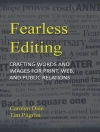Speech recognition in ‘adverse conditions’ has been a familiar area of research in computer science, engineering, and hearing sciences for several decades. In contrast, most psycholinguistic theories of speech recognition are built upon evidence gathered from tasks performed by healthy listeners on carefully recorded speech, in a quiet environment, and under conditions of undivided attention. Building upon the momentum initiated by the Psycholinguistic Approaches to Speech Recognition in Adverse Conditions workshop held in Bristol, UK, in 2010, the aim of this volume is to promote a multi-disciplinary, yet unified approach to the perceptual, cognitive, and neuro-physiological mechanisms underpinning the recognition of degraded speech, variable speech, speech experienced under cognitive load, and speech experienced by theoretically relevant populations. This collection opens with a review of the literature and a formal classification of adverse conditions. The research articles then highlight those adverse conditions with the greatest potential for constraining theory, showing that some speech phenomena often believed to be immutable can be affected by noise, surface variations, or attentional set in ways that will force researchers to rethink their theory. This volume is essential for those interested in speech recognition outside laboratory constraints.
Ann Bradlow & Matthew Davis
Speech Recognition in Adverse Conditions [PDF ebook]
Explorations in Behaviour and Neuroscience
Speech Recognition in Adverse Conditions [PDF ebook]
Explorations in Behaviour and Neuroscience
Beli ebook ini dan dapatkan 1 lagi PERCUMA!
Bahasa Inggeris ● Format PDF ● Halaman-halaman 328 ● ISBN 9781317836810 ● Penyunting Ann Bradlow & Matthew Davis ● Penerbit Taylor and Francis ● Diterbitkan 2013 ● Muat turun 3 kali ● Mata wang EUR ● ID 7119220 ● Salin perlindungan Adobe DRM
Memerlukan pembaca ebook yang mampu DRM












